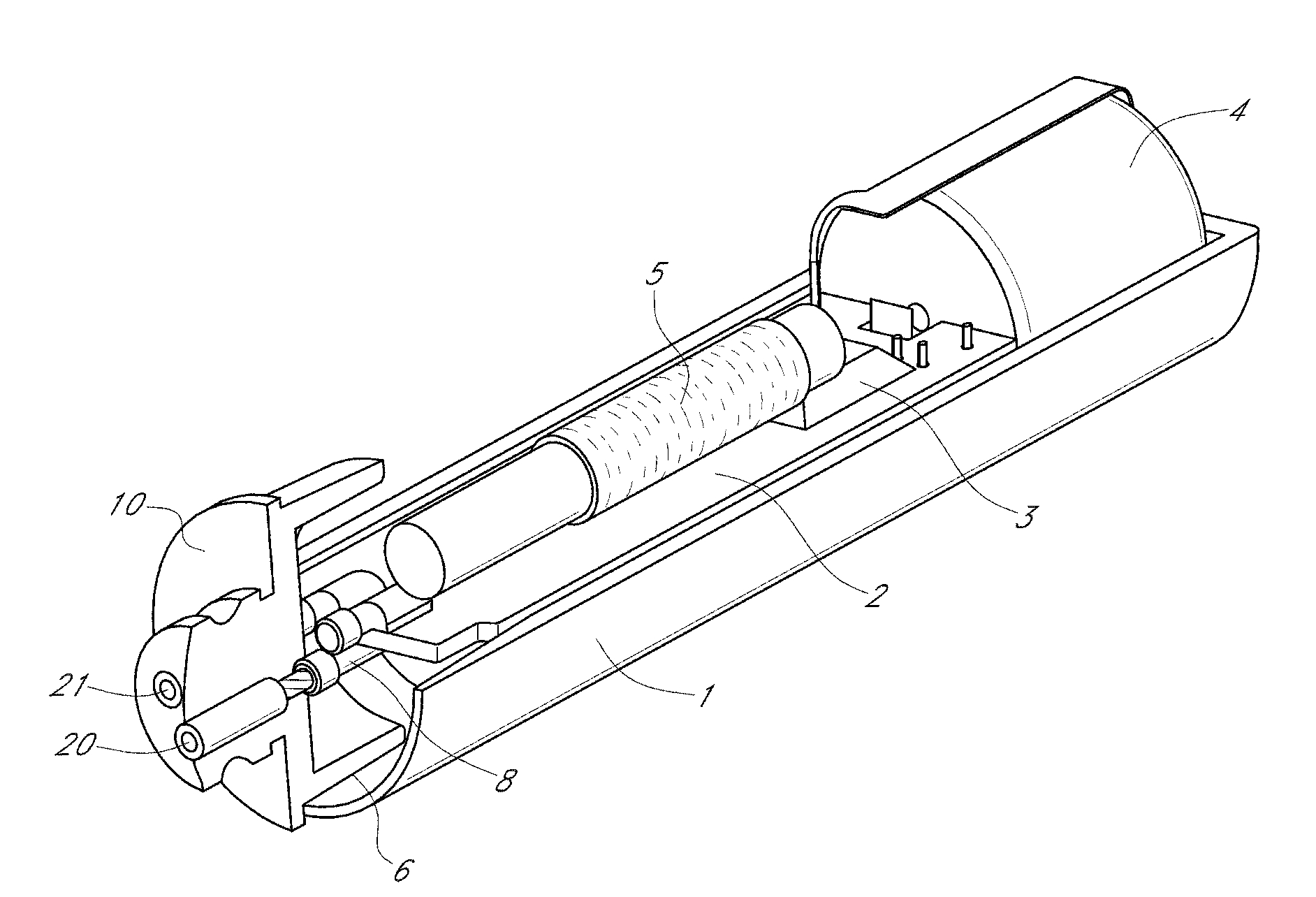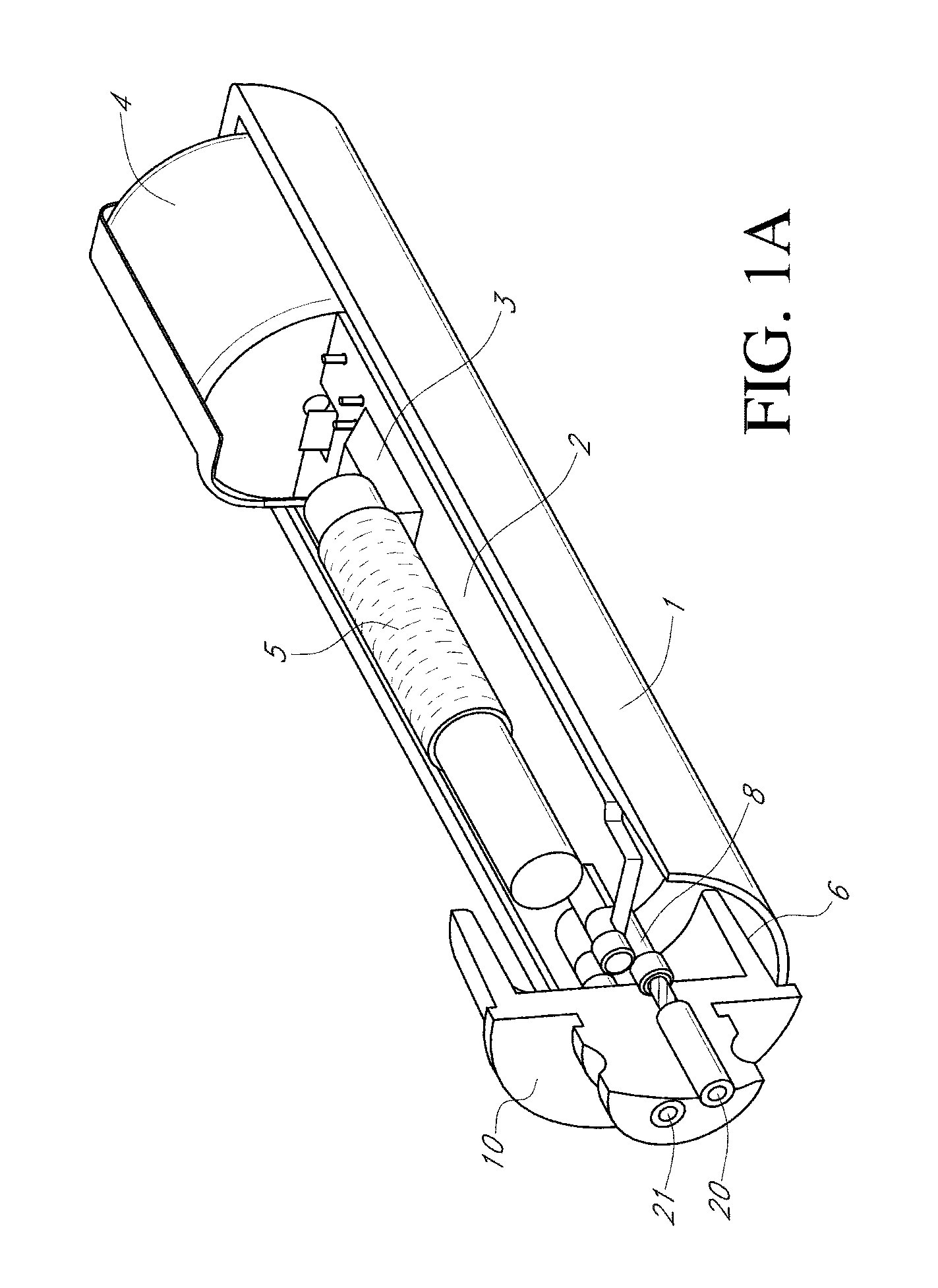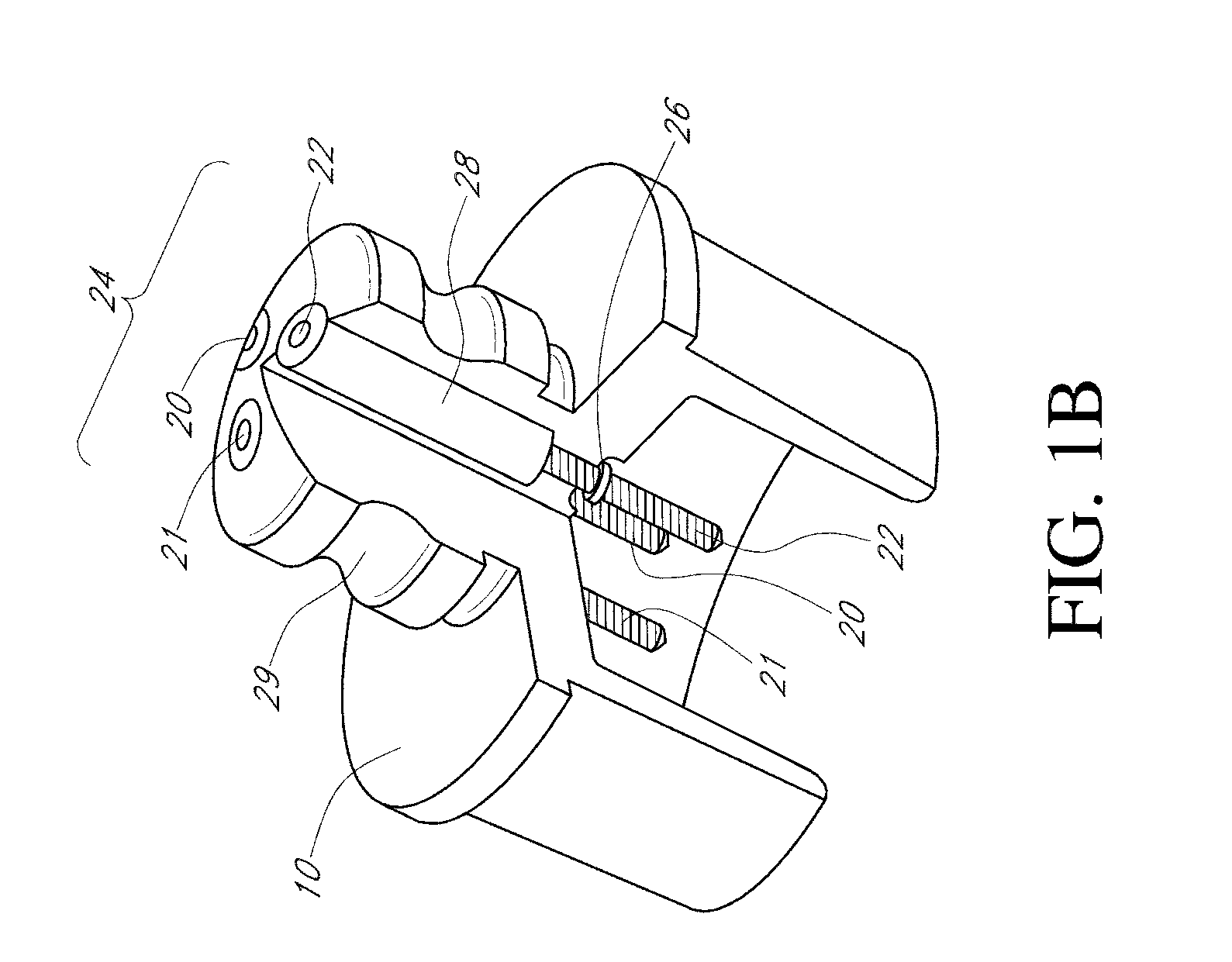Device and method for determining analyte levels
- Summary
- Abstract
- Description
- Claims
- Application Information
AI Technical Summary
Benefits of technology
Problems solved by technology
Method used
Image
Examples
example 1
Preparation of Composite Membrane of the Present Invention
[0111]The angiogenic layer may be an ePTFE filtration membrane (Zefluor™, 3.0 μm P5PI001, Pall Gelman, Ann Arbor, Mich.) and the bioprotective membrane (C30P) may then be coated on the angiogenic layer. For example, the C30P coating solution was prepared by placing approximately 706 gm of dimethylacetamide (DMAC) into a 3 L stainless steel bowl to which a polycarbonateurethane solution (1325 g, Chronoflex AR 25% solids in DMAC and 5100 cp) and polyvinylpyrrolidone (125 g, Plasdone K-90D) were added. The bowl was then fitted to a planetary mixer with a paddle type blade and the contents were stirred for 1 hour at room temperature. This solution was then coated on the ePTFE filtration membrane by knife-edge drawn at a gap of 0.006″ and dried at 60° C. for 24 hours.
[0112]Alternatively, the C30P solution prepared above can be coated onto a PET release liner using a knife over roll coating machine. This material is then dried at 3...
example 2
Preparation of the Sensing Membrane
[0113]The sensing membrane includes a resistance layer, an enzyme layer, an interference layer and an electrolyte layer. The resistance layer was prepared by placing approximately 281 gm of DMAC into a 3 L stainless steel bowl to which a solution of polyetherurethaneurea (344 gm of Chronothane H, 29,750 cp at 25% solids in DMAC) was added. To this mixture was added another polyetherurethaneurea (312 gm, Chronothane 1020, 6275 cp at 25% solids in DMAC). The bowl was fitted to a planetary mixer with a paddle type blade and the contents were stirred for 30 minutes at room temperature. The resistance layer coating solution produced is coated onto a PET release liner (Douglas Hansen Co., Inc. Minneapolis, Minn.) using a knife over roll set at a 0.012″ gap. This film is then dried at 305° F.
[0114]The enzyme layer was prepared by placing 304 gm polyurethane latex (Bayhydrol 140AQ, Bayer, Pittsburgh, Pa.) into a 3 L stainless steel bowl to which 51 gm of p...
example 3
In Vivo Evaluation of Glucose Measuring Devices Including the Biointerface Membranes of the Present Invention
[0118]In vivo sensor function was determined by correlating the sensor output to blood glucose values derived from an external blood glucose meter. We have found that non-diabetic dogs do not experience rapid blood glucose changes, even after ingestion of a high sugar meal. Thus, a 10% dextrose solution was infused into the sensor-implanted dog. A second catheter is placed in the opposite leg for the purpose of blood collection. The implanted sensor was programmed to transmit at 30-second intervals using a pulsed electromagnet. A dextrose solution was infused at a rate of 9.3 ml / minute for the first 25 minutes, 3.5 ml / minute for the next 20 minutes, 1.5 ml / minute for the next 20 minutes, and then the infusion pump was powered off. Blood glucose values were measured in duplicate every five minutes on a blood glucose meter (LXN Inc., San Diego, Calif) for the duration of the st...
PUM
 Login to View More
Login to View More Abstract
Description
Claims
Application Information
 Login to View More
Login to View More - R&D
- Intellectual Property
- Life Sciences
- Materials
- Tech Scout
- Unparalleled Data Quality
- Higher Quality Content
- 60% Fewer Hallucinations
Browse by: Latest US Patents, China's latest patents, Technical Efficacy Thesaurus, Application Domain, Technology Topic, Popular Technical Reports.
© 2025 PatSnap. All rights reserved.Legal|Privacy policy|Modern Slavery Act Transparency Statement|Sitemap|About US| Contact US: help@patsnap.com



